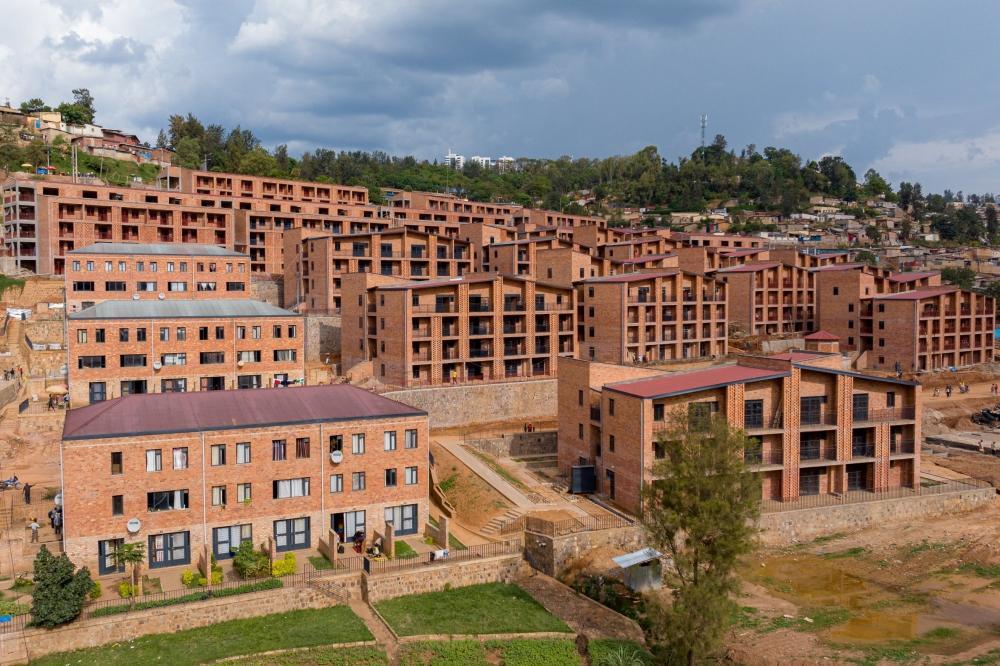Africa-Press – Rwanda. Residents in Kigali are set to benefit from the upgrading of key informal settlements as part of the priorities outlined in the Citizen Guide to Budget, a simplified booklet designed to help Rwandans understand how public funds are planned and spent.
The Ministry of Finance and Economic Planning launched the nationwide distribution of the guide on August 12 at the City of Kigali Hall in Nyarugenge District.
The resource breaks down the Rwf7 trillion 2025/26 national budget into clear, accessible language to promote transparency, accountability, and citizen participation. Booklets have been distributed at district, sector, cell, and village levels.
Marie Rose Nirere, Executive Secretary of Rwezamenyo Sector, said residents have already identified upgrading the Rwezamenyo informal settlement as a priority.
“With the Citizen Guide to Budget, citizens will be able to monitor the implementation and understand their role,” she said, noting the need for other infrastructure such as schools, health centres, and roads.
The City of Kigali plans to upgrade informal settlements covering 230 hectares in the Kagugu area of Gasabo District and Rwezamenyo in Nyarugenge District under the Rwf92 billion Kigali Informal Settlement Upgrading Project (KISUP), to be completed by July 2029.
For 2025/26, Rwf20.4 billion has been allocated, though an additional Rwf9 billion is needed for expropriation compensation.
The upgrades will include access roads, footpaths, stormwater drainage, improved water supply, street lighting, and enhanced social facilities such as schools, health posts, markets, early childhood development centres, green spaces, and recreational areas. Planned facilities also include sports grounds, libraries, and community halls.
Under the World Bank-funded Rwanda Urban Development Project II (RUDP II), Kigali will also upgrade four informal settlements: Mpazi (Nyarugenge), Nyabisindu and Nyagatovu (Gasabo), and Gatenga (Kicukiro).
Alexis Ingangare, Nyarugenge District Executive Administrator, said the guide will help residents see how their priorities are reflected in the budget.
“We have roads to be rehabilitated, and the Mageragere Genocide Memorial will be upgraded, among others,” he said.
The guide shows that Rwf15 billion has been earmarked for the Kigali Infrastructure Project (KIP), launched in 2020 to upgrade about 215 km of roads through construction, rehabilitation, and bridge building. A further Rwf1.1 billion will support neighbourhood road construction under a cost-sharing model with residents.
It also details planned compensation for expropriations, including Rwf3.439 billion for properties affected by the Parklane Project in Kimihurura, Rwf1.177 billion for the Green Hills–Kibagabaga road, and Rwf462 million for shelter for needy genocide survivors.
Fred Manzi Mukombozi, Director-General for Budget Management and Reporting at the finance ministry, said the guide will enhance citizens’ ownership of budget execution. Emmanuel Safari, Executive Secretary of human rights umbrella group CLADHO, added that citizen engagement in budget processes is a right that must be upheld.
“With the Guide to Budget, citizens will be able to see how their priorities were considered and prepare for the next budget cycle,” Safari said.
For More News And Analysis About Rwanda Follow Africa-Press






